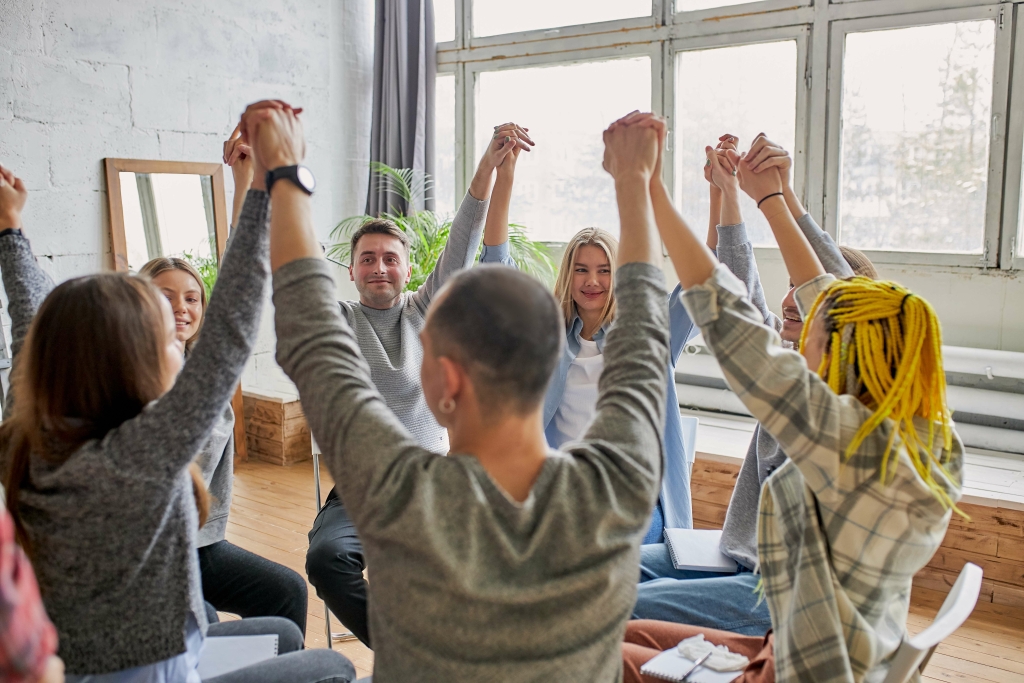Sober nights unfold like a time-lapse flower blooming, revealing the vibrant colors of restorative sleep long masked by alcohol’s dulling effects. This poetic imagery captures the transformative journey many experience when they decide to quit drinking alcohol. The path to better sleep after giving up alcohol is not always smooth, but it is undoubtedly rewarding. Heavy alcohol use can contribute can’t sleep without alcohol to the development of insomnia, a sleep disorder characterized by difficulty falling asleep and staying asleep. As many as three quarters of people with alcohol dependence experience insomnia symptoms when they drink. Trusted Source UpToDateMore than 2 million healthcare providers around the world choose UpToDate to help make appropriate care decisions and drive better health outcomes.
- The information we provide while responding to comments is not intended to provide and does not constitute medical, legal, or other professional advice.
- Some people in recovery may try to start drinking again to improve their sleep.
- If you think your drinking may be impeding your sleep or overall quality of life, speaking to your doctor or therapist is a great first step.
- These adjustments, often emphasized in rehab programs, contribute to a smoother recovery process.
- It can also negatively affect mood, which can, in turn, affect personal relationships.
Older Adults May Improve Deep Sleep With Noise
These exercises are also a great distraction when lying awake in bed. RISE can tell you when to do 20+ sleep hygiene habits at the right time for your body clock https://ecosoberhouse.com/ to make them even more effective. Here’s more on those key tips to avoiding alcohol insomnia for the casual drinker or those without alcohol abuse problems.
Can Tracking Your Child’s Sleep Give a Look Into Their Upcoming Day?
Shipping is free, and if Sleep Support doesn’t agree with your biochemistry or help you sleep better, you can return it for a full refund. However, as we discussed earlier, normalizing your brain chemistry during the day can help you sleep better at night. My favorite amino acid of all is DLPA, which is not specifically used for insomnia.
What you can do if your sleep is impacted
Alcohol is highly effective at suppressing melatonin, a key facilitator of sleep and regulator of sleep-wake cycles. Research indicates that a moderate dose of alcohol up to an hour before bedtime can reduce melatonin production by nearly 20 percent. Alcohol has a direct effect on circadian rhythms, diminishing the ability of the master biological clock to respond to the light cues that keep it in sync.
Monarch Shores offers luxury housing with beautiful ocean views and individualized addiction treatment in Southern California. The goal of cognitive behavioral therapy for insomnia (CBT-I) is to change sleep habits as well as any misconceptions about sleep and insomnia that may perpetuate sleep difficulties. However, I am a big fan of kava, which you can read about in this article here. They possibly saved my life from seizures during severe withdrawal. I write about them because I once had no idea that medication could be necessary to save someone during severe withdrawal.
- You may also experience insomnia and sleep disturbances when drinking and years after you’ve quit.
- As alcohol use ceases, these underlying conditions may become more apparent and may require professional attention.
- Delirium tremens is the most severe form of alcohol withdrawal and occur in a small percentage of individuals.
- Fortunately, the remedies I’m about to share with you still work for me to this day.
However, it is crucial to have a rough timeline in mind to get an idea of what to expect. Just like the variances seen in the science behind insomnia after alcohol detox, the duration of insomnia after quitting is equally diverse. Alcohol withdrawal can be an emotionally turbulent period for many.
Set a Regular Sleep Schedule
- However, if you continue to have sleeping difficulties, reach out to a sleep specialist.
- Thus, understanding and addressing such sleep disturbances is critical during the recovery process.
- Staying physically active during the day can help you fall asleep at night, as well as promote overall health.
- For people that quit drinking and can’t sleep… I’m SUPER PUMPED to tell you about Sleep Support because it’s an easy and affordable way to consume many of my favorite sleep-inducing nutrients.
People who go to bed with alcohol in their system may be more likely to wake early in the morning and not be able to fall back to sleep, another consequence of the rebound effect. Most people sleep better in cooler temperatures, around 65°F, though this can vary per individual. Avoid screens for at least an hour before sleep,6 as their blue light emission suppresses melatonin production and disrupts sleep cycles. Make your bedroom dark, cool, and quiet for optimal sleep conditions.
Study Links Bed Sharing to Higher Rate of Sudden Unexpected Infant Deaths

Regular alcohol users often experience a range of sleep issues, including difficulty falling asleep, frequent night-time awakenings, and early morning wakefulness. The first week after quitting alcohol can be challenging for sleep. Paradoxically, some individuals may experience increased sleep disturbances during this period. This is primarily due to alcohol withdrawal symptoms, which can include anxiety, restlessness, and night sweats. Sweating in sleep after drinking is a common issue that may persist or even intensify during the initial days of sobriety. In the early stage of alcohol withdrawal, many individuals experience an increase in sleep latency (the time it takes to fall asleep) and frequent night awakenings.
Alcohol use and dependence appear to interfere with circadian rhythms—biological patterns that operate on a 24-hour clock. These fluctuations play a vital role in the sleep-wake cycle, and when they are weakened—or absent—a person may feel alert when they want to sleep and sleepy when they want to be awake. Sleep medications should be used judiciously and only for a short period of time. They can help regulate sleep patterns and assist in transitioning away from alcohol as a sleep aid.
This will give your body some fuel to break down the alcohol in your system. Alcohol can trigger night sweats, so you want to get the temperature right. Avoid anything with sugar or caffeine that could further disrupt your sleep.
